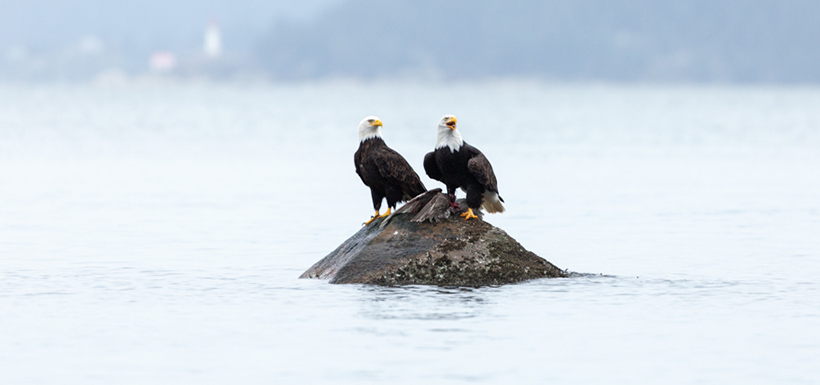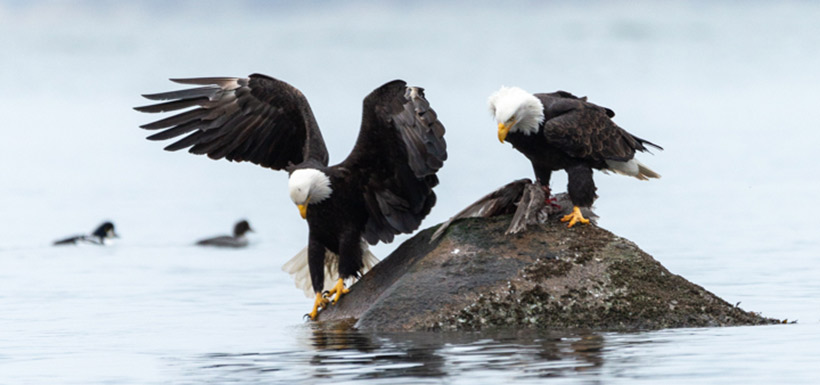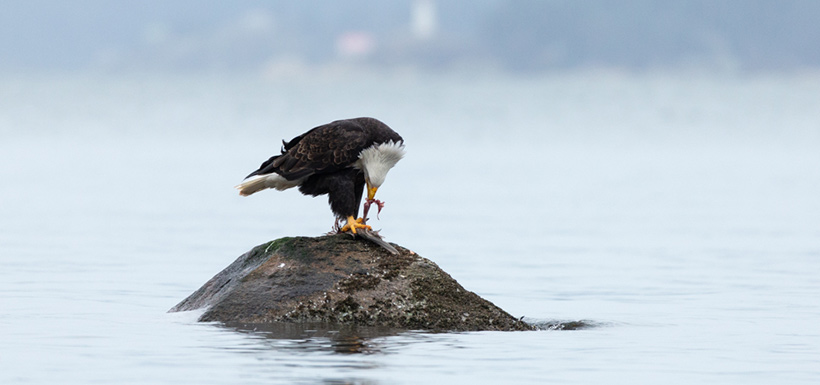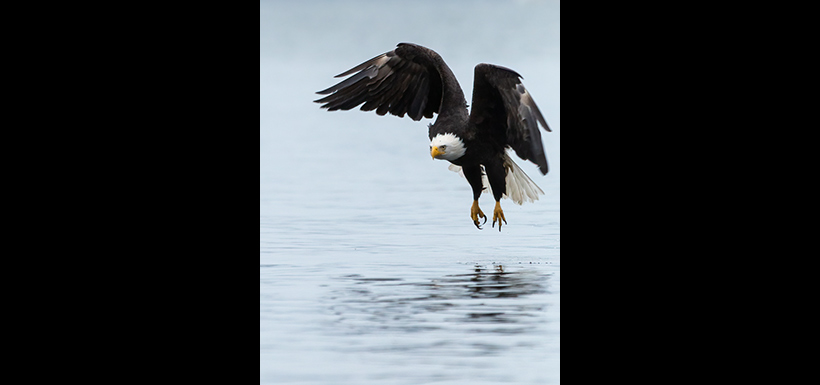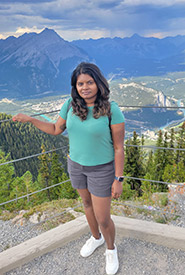Canada's largest bird of prey: two bald eagles having a staring contest
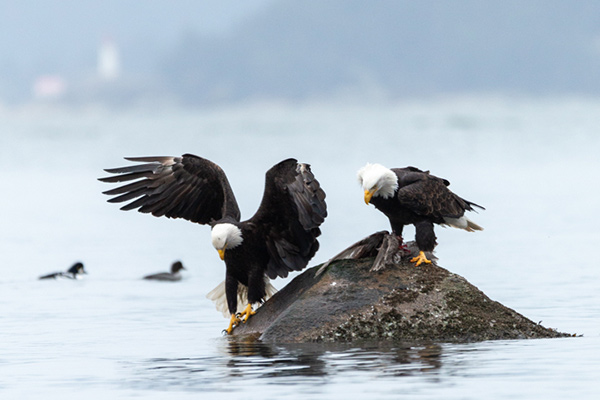
After a few minutes of giving each other looks and making small calls, the bald eagle on the left flew off, leaving the carcass for the other eagle to enjoy. (Photo by Nila Sivatheesan/NCC staff)
I’ve always loved being outside and learning about the nature around me, since I was as young as I can remember. So, when I first picked up a camera at 19, I naturally gravitated toward photographing nature and wildlife.
Being in nature with my camera is a meditative experience for me. It’s the one time where my mind quiets down and allows me to be fully present, appreciating what’s around me and noticing all of the beauty in the small details.
In mid-November, I was out with my camera along the Stanley Park Seawall. As I looked through my telephoto lens, panning across the surface of the water, I saw two eagles sitting on a rock.
An eagle staring contest
There was a carcass of a bird on the rock, which one eagle hovered over. The second eagle stood next to it, eyeing the carcass and the other eagle. After what looked like a staring contest and some arguing, the second eagle flew off, leaving the carcass for the first eagle to feast on.
Big and awesome
My initial feeling on spotting them was awe; my second thought was, “Whoa! Eagles are huge!” Even though these eagles were far out in the water, I could still see their looming stature. Bald eagles can reach 71 to 96 centimetres in height with a wingspan of 204 centimetres. I could see its powerful beak rip up the flesh of its prey.
Seize the moment: wildlife photography tips
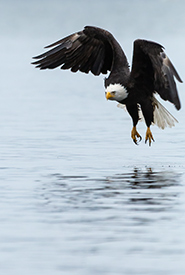
Bald eagle taking off (Photo by Nila Sivatheesan/NCC staff)
I was in the right place at the right time and was lucky to have stumbled upon these eagles. But capturing it on camera requires the kind of luck when preparedness meets opportunity.
Look for those moments that make you feel something. It can be anything from a herd of deer grazing, red fox kits playing or a hummingbird flying through a garden. When you feel that something wonderful is about to happen, trust your instinct. You must also be ready! There have been so many moments that I've missed because my camera was turned off or not on the proper settings. Make sure you adjust your settings as you go so that you're always ready to capture the moment.
Respect wildlife
When it comes to wildlife photography, the most important thing in my opinion is to first be aware of where you are in relation to the animal. Make sure you keep your distance, for both your safety and the well-being of the animal’s. This is especially important when animals are nesting or feeding. Avoid baiting wildlife with food or imitating calls to get their attention for the sake of a photo. These practices are extremely detrimental to wildlife.
In moments like the one with the eagle, where I didn’t know how long it would remain on the rock, I avoided overthinking it and just went with the flow. My first couple of shots were just to get a decent, well-exposed photo to upload to iNaturalist. Then, as I was shooting, I began to make changes to the settings and my positioning to get a good shot. Having my telephoto lens came in handy as I was able to remain very far away from the eagle, giving it plenty of space and avoiding scaring it off.
On days when I don’t have my camera on-hand and I rely on my phone to take photos, I’m not able to zoom in as much as I’d like. So, I look for an interesting way to frame my subject using the elements in the background.
Sharing the love for nature through photography
Being new to Vancouver and not knowing anyone in the area, I joined a Facebook group for women in Vancouver looking to connect with other women. I made a post asking if anyone else enjoyed nature/wildlife photography and would be interested in going on a photo walk together. The response surprised me — there was so much interest! I decided to create my own Facebook group for us: Vancouver Women+ Nature Photography Meet Ups. We had our first photo walk a few weekends ago and it was so great to be able to meet other like-minded photographers who also loved being out in nature. The group now has over 35 members. It was during this photo walk that we spotted the bald eagles.
This eagle sighting was meaningful in so many ways. Watching wildlife in their habitat and sharing the moment with other people, in person and online, has allowed me to raise a bit of awareness about these raptors and their conservation needs.
Want to support wildlife species and their habitat? With your donation, you are accelerating the pace of conservation and helping find solutions to the twin crises of rapid biodiversity decline and climate change. Learn more >

